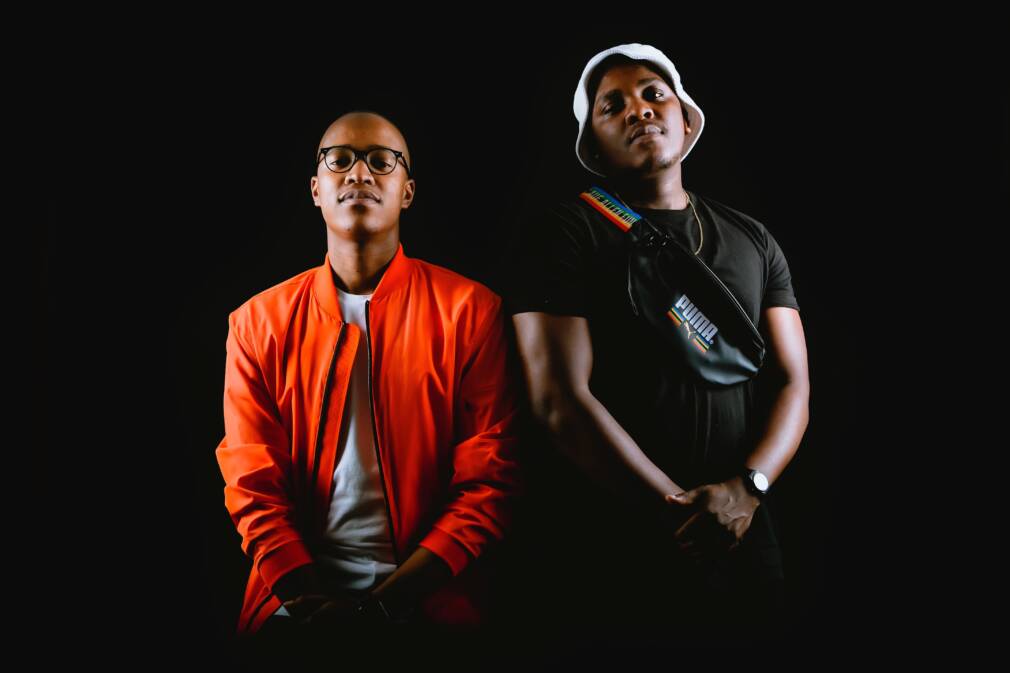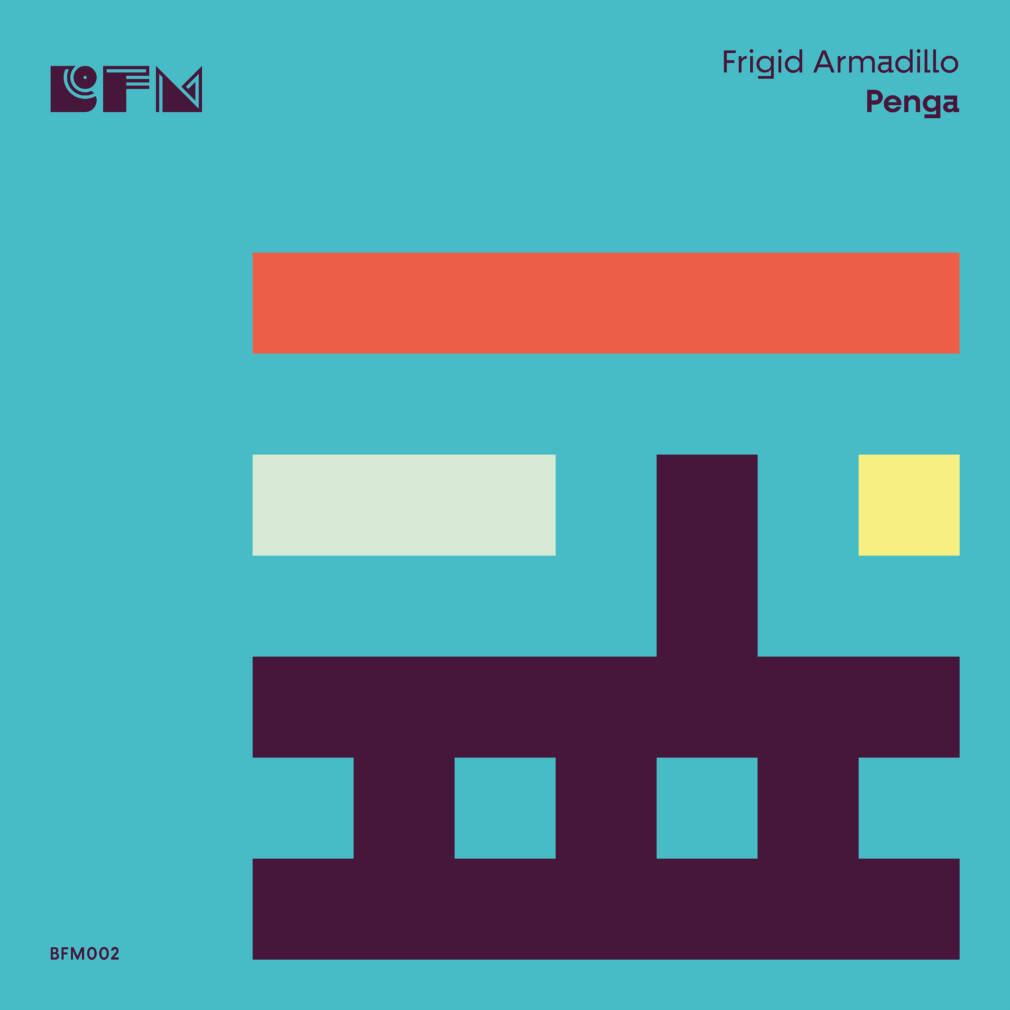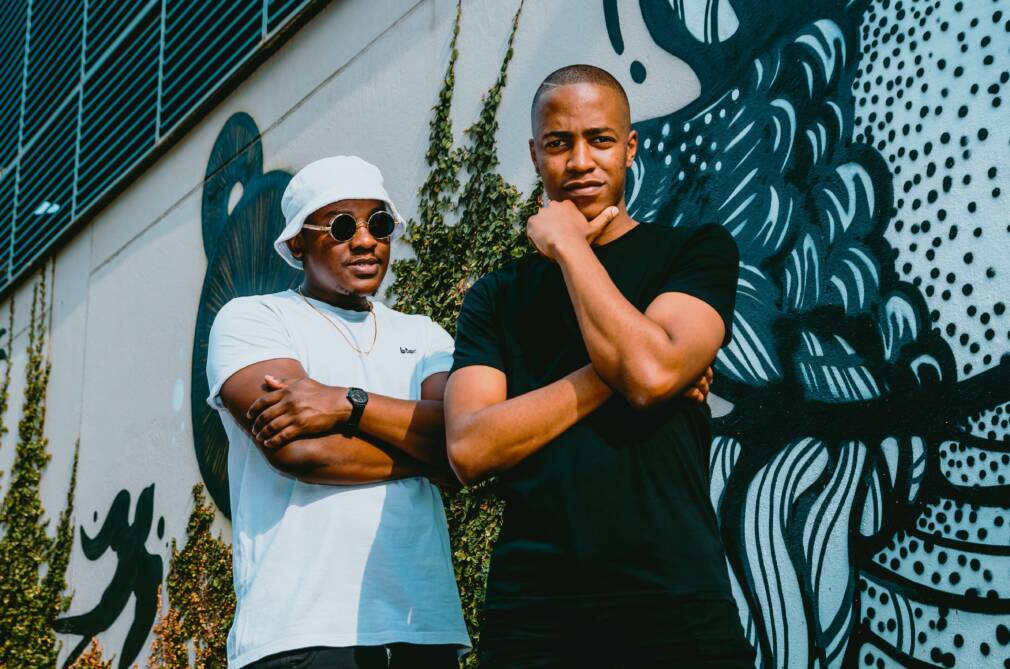The innovative and inspired Afro-house pair known as Frigid Armadillo met while studying in Johannesburg in 2010. Coming together as the only two amongst their peers who showed interest in music production while bonding over a John Dahlbäck track, Lebo Lechela and Siyabulela Buhlungu found kinship in their longing to meticulously create a work of sonic art. Commandeering common pop arrangements and overlaying them with painstakingly experimental Afro-house grooves they’ve coined “Frigidization,” the two were equally awe-struck and invigorated by how far their sound would travel.
Their debut EP, Adam’s Calendar, housed the breakout track, “Roam in a Day,” which received keen nods from LP Giobbi, Sam Divine and Black Coffee via his BBC Radio 1 Essential Mix, and went on to be included on the illustrious Defected Festival’s official 2021 Afro House Mix. By the time their next offering in the Goliath’s Footprint EP was just a few weeks old, the project had landed the no.1 spot on the Itunes Dance chart in South Africa. Their most recent Humanity EP wasn’t far behind, landing the Apple Music no.1 spots in Botswana and Canada and no.2 in the U.S.
Starting 2023 off with their latest double release in Penga, we spoke with Lebo and Siya in the wake of the release about Afro-House’s gentrification, “keeping things interesting” and a new year of emotion-led music crafted entirely on their terms.
A stand out moment for you thus far has undoubtedly been “Roam in a Day” which was a game changer for anyone curious about the direction house sounds would go. What has the last 3 years been like for you since its release?
Lebo: It’s been a wild ride. For every one step forward it feels like it’s 2 steps back, and for every step back you’re propelled forward even more. No two days are the same and it’s a lot of “hurry-up-and-wait.” It feels like everybody’s waiting for your next move and sometimes doors open, but not all the way. We just want to make sure we’re not an overnight fad and the trickiest part becomes not letting success get to your head. I’m eternally grateful for the “Roam in a Day” moment; I don’t think we’d be where we are now if it wasn’t for how this song organically grew. Siya says he saw it coming, but I call BS on that…
Siya: The reason I say that I felt it coming is based on how the song was made. In the song, you can’t really hear it but there’s a loop from a Black Coffee remix that I chopped up and put in the song (find it here: “In Common” – Alicia Keys, Black Coffee Remix). The funniest part is that he was the first big DJ to play it on a stream and from there we blew up exponentially. From that day that I put the loop in, I had a feeling that the song would be something special.
Since then you’ve focused on breadcrumbing EPs. What would you say you try to explore EP to EP, one release to the next?
Siya: To be honest Shiba, we don’t have a formula. A lot of our music is mood-dependent; it really depends on what mood we go in with that day. Goliath’s Footprint was more of a continuation of that angelic, anthemic sound that the first EP gave you, but most of the music we’ve made that hasn’t come out yet is a feeling thing, an emotional thing. There’s no plan, we just do what we feel like doing on the day.
Lebo: I don’t know if this is a great thing to say, but it’s also a competition thing. We also hear really great music and the challenge becomes, can we make something better, something that makes us proud of what we can do. Like Caiiro’s last album, Pyramids – it’s otherworldly. If we ever create an album, we’d want to be as proud as Caiiro probably was around his work. A lot of it is feeling a bit imposter syndrome – we’ve always been underdogs and EP to EP we’ve just had to find our groove and learn that people actually really enjoy our music. If you’re proud of the song, you hope the world will be too. You either get no feedback or you get “we like it, but can you make it more Black Coffee?” Now we’re in a place where people want more “Roam in a Day” but like Siya had said before – “Roam in a Day” is a moment, it’s not a sound. If we’re having a “Roam in a Day” day, you can get a “Roam in a Day” track. We’re not machines. We don’t just churn out sounds that are all alike. It’s about pushing the envelope, not taking things personally and having fun.
So when you look out onto the Afro-house landscape, what do you see or hear, and how does Penga fit into the greater story of your sound and where this genre is positioned in South Africa’s sonic story?
Siya: The first thing to note is that right now South Africa is taking over the house scene, no matter what the sub-genre. Afro-house, amapiano, gqom, it’s all up there. I think right now we should keep focused and do what we do, because we’ve got the world’s attention now. The talent is here and we appreciate house music – dare I say – more than any other country. Maybe it goes back to feeling. I can’t say what it is but we have it! Some folks who have it for me are Chronical Deep and Mpho.Wav.
Lebo: For me, house does for me what hip hop did for me in 2010. It was a feeling thing and there are levels to it. You get sounds upfront that are for everyone and then you get sounds deep into the back of a song that are for the discerning listener that you have to dig deep for and you just want to step into the song and give it a hug. That’s what I’m in this for, it’s amazing and I like to meet folks on any level. To your question about who is doing it for me is G-Washington. His productions are perfect but I don’t think he’s gotten his flowers yet.
Having said that, there’s a trend I’ve noticed. There seems to be a paradigm shift toward a more simplified Afro-House, which is weird. Siya and I took a long time for us to get our heads around it because the drums were always difficult to pick up on. We come from very different worlds to the one we find ourselves in right now, and there was a lot of learning we had to do. The drums just make the song feel really full when a song hasn’t really started, and I think Adam’s Calendar was the first time we got it right – but now there seems to be a shift toward more simple percussion. There’s not so much happening in the rhythm section and melody section anymore, like it’s trying not to scare you off. And I think these “safer” types of Afro-house tracks are ones I don’t really enjoy. I bring up Chronical Deep because he’s done things with Afro-house that no one would ever dare to do, and each time it’s worked. I’d love for folks to go back to the more intricate, deeper melodies that speak to you and push the envelope.
Why do you think that is? Especially considering the fact that rhythm is something Afro genres have come to be most appreciated for, or at the very least, founded on?
Lebo: The short answer is that it’s the gentrification of Afro house. In order for mass adoption to occur, I think we (the producers/DJs) find ourselves in a place where we need to appeal to the target audience and what they’re most familiar with. I think you have also probably noticed that there is a more electronic approach to Afro-house with regards to the sounds that are utilised. Ethnically speaking, we do not have a heavy reliance on electronic synthesisers in our music, and initially this is something we had appropriated and merged with our sound (Afro-tech), but has now become the dominant feature of neo-Afro house. Now that we find ourselves being invited to tables where we were once underrepresented, there is a propensity to keep up with the Joneses by churning out a sound that they will find easily digestible.

It’s interesting to note that you feel this way about a genre (i.e. house) which has had its history very much whitewashed, and one of the songs on Penga is about slavery. Can you speak a bit about the themes that seem to be recurring in your music?
Siya: So James Baldwin is the voice on “Ladies and Gentlemen” that talks about slavery in the breakdown. Then there’s an American jazz musician called Gary Bartz who speaks about blues.
Lebo: What we tend to do is to make the song, and have the vocals sort of fit around the song. We always want the vocals to fit the mood but to also say something. Even though we don’t experience the kind of slavery he talks about directly, the understanding of the era of slavery and what it means to be a prisoner of something is there. We tie that back to the music in that when the song breaks down we will add a bit about slavery, we use it to keep the tension going even while the music is breaking down. This music is freeing. At the end of the day that escapism is what the music is supposed to do to us.
…And at the same time, we see Afro House artists like Morda bringing on amapiano artists like Focalistic and Murumba Pitch, with Mobi Dixon bringing on Babalwa M etc. You even brought on Hulumeni for your own productions. Do you consider this a necessary thing given how popular amapiano has become to the rest of the world, or an inevitable thing as a house appreciating nation?
Siya: It’s like Lebo was saying, we need to keep pushing the envelope. I don’t think there’s a point in bringing in an amapiano artist to the most simple Afro House song. You might as well have just chosen an Afro House artist then. If we’re going to be doing this cross-pollination of genres, then we must try our best to develop something new and interesting that is truly South African that no one can replicate. Really use each other’s skills and keep things interesting!
What can we look forward to now that Penga is out? Will we see more of you live, and how does that compare to being in the studio?
Siya: The live sets are something else.I don’t think it matters where we play but every time we play in Kenya for example, it feels like you have the crowd in the palm of your hand and they dictate what we do. At times it feels like we were meant to be doing what we’re doing. We have no musical background in our families at all, so things have to just come to us naturally. I taught Lebo how to DJ within a week and he took it up really quickly. It’s hard to describe taking that passion to the crowd.
Lebo: Being on stage is an out of body experience. That’s how it feels every single time. Like Siya was saying, it feels like it was meant to be. And this is why we do it; this is why we’ve been back and forth on a song for 5 years; this is why we’re never satisfied with the mix; this is why it all needs to happen – for this moment right here, this 60 minutes live means everything. When we’re out there, everything makes sense. We’re free.
Penga is out now via Bridges For Music





